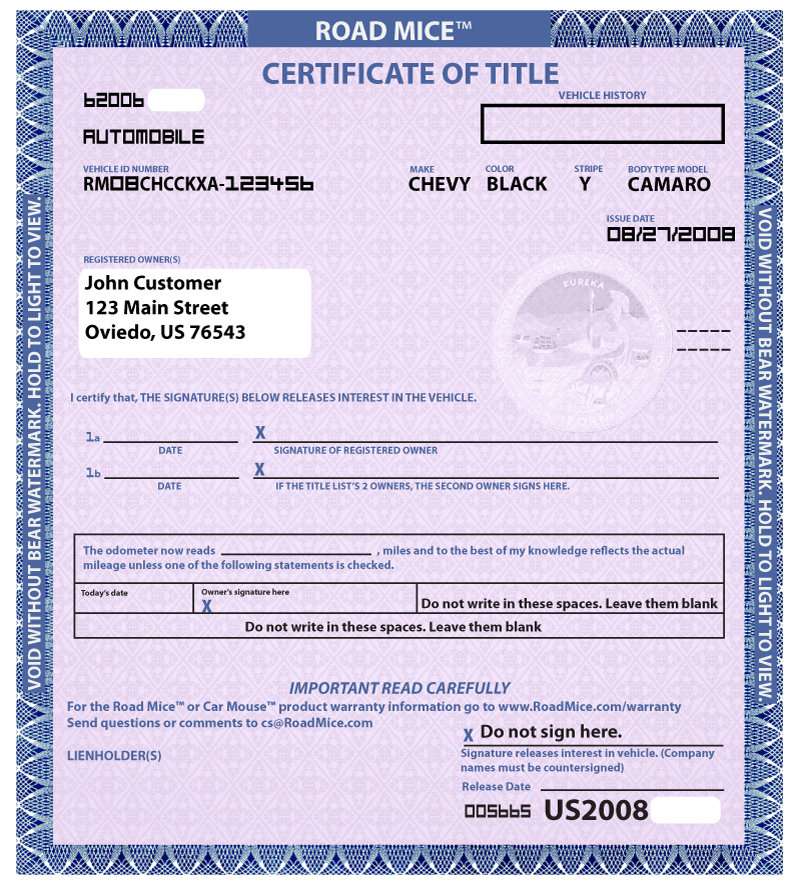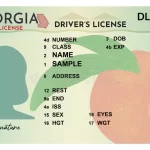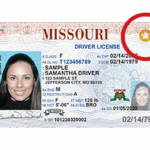The Ultimate Guide to Legally Transferring a Car Title: A State-by-State Breakdown

The open road beckons, and you’re ready to sell your beloved ride or gift it to a lucky recipient. But before you hand over the keys and wave goodbye, there’s a crucial step you need to master: legally transferring the car title. This seemingly simple document is the cornerstone of ownership, and a proper transfer ensures a smooth transaction, protecting both the seller and the buyer from potential legal complications down the road.
This comprehensive guide will equip you with the knowledge to navigate the often-confusing world of car title transfers, providing a detailed overview of the process and highlighting key considerations for each state. We’ll cover everything from gathering the necessary paperwork to understanding state-specific regulations, ensuring a hassle-free and legally sound transfer of ownership.
Why is a Car Title Transfer So Important?
Think of the car title as the birth certificate for your vehicle. It’s a legal document issued by the state’s Department of Motor Vehicles (DMV) or equivalent agency, proving ownership. It contains essential information such as:
- Vehicle Identification Number (VIN): A unique identifier for your specific car.
- Year, Make, and Model: Descriptive details of the vehicle.
- Registered Owner(s): The legal owner(s) of the vehicle.
- Lien Information (if applicable): Details about any outstanding loans secured against the vehicle.
Transferring the title legally accomplishes several crucial objectives:
- Establishes Legal Ownership: It officially transfers legal ownership from the seller to the buyer.
- Protects the Buyer: It assures the buyer that the seller has the legal right to sell the vehicle and that there are no hidden liens or ownership disputes.
- Protects the Seller: It releases the seller from future liability for the vehicle, including parking tickets, accidents, and other legal issues.
- Allows Vehicle Registration: The buyer can then register the vehicle in their name, obtaining license plates and legally operating it on public roads.
Failure to properly transfer the title can lead to a myriad of problems, including:
- Legal Disputes: Complications can arise if ownership is contested.
- Financial Liability: The seller could be held responsible for the buyer’s actions with the vehicle.
- Registration Issues: The buyer may be unable to register the vehicle and obtain license plates.
- Sale Complications: Selling the vehicle in the future becomes significantly more difficult without a clear title.
The General Process of Transferring a Car Title:
While specific requirements vary by state, the general process for transferring a car title follows these core steps:
1. Gather Necessary Documents:
- Title: The original vehicle title, free of alterations or erasures.
- Bill of Sale: A document outlining the terms of the sale, including the purchase price, date of sale, and seller/buyer information.
- Odometer Disclosure Statement: A statement confirming the vehicle’s mileage at the time of sale. Many states require this to be completed on the title itself.
- Release of Lien (if applicable): If there was a loan on the vehicle, a lien release from the lender is required.
- Identification: Valid driver’s licenses or other acceptable forms of identification for both the seller and the buyer.
- Application for Title (if required): Some states require the buyer to complete a specific application form for a new title.
- Smog Certification (if required): In some states, a recent smog check certificate is required.
- Proof of Insurance: The buyer will need to provide proof of insurance before registering the vehicle.
2. Complete the Information on the Title:
- Seller’s Information: The seller must accurately complete the sections on the title related to the seller’s information, including signature, printed name, and address.
- Buyer’s Information: The seller must also ensure the buyer’s information – name, address, and signature – is accurately filled out.
- Sale Price: The sale price must be clearly stated, as this is often used to calculate sales tax.
- Odometer Reading: The current odometer reading must be accurately recorded and signed by both the buyer and seller.
- Date of Sale: The date the vehicle was sold must be clearly indicated.
3. Sign the Title:
- Seller’s Signature: The seller must sign the title in the designated area.
- Buyer’s Signature: The buyer must also sign the title, acknowledging the transfer of ownership. Be sure to sign in the presence of a notary if your state requires it (more on that below).
4. Provide the Bill of Sale:
- A Bill of Sale provides a record of the transaction and includes important details like the sale price, date, and names of both the buyer and seller. Download a template online or create your own.
5. Submit the Required Documents to the DMV (or Equivalent Agency):
- The buyer is generally responsible for submitting the title, bill of sale, and any other required documents to the DMV (or equivalent agency) in their state.
- They will also need to pay any applicable taxes and fees.
6. Obtain a New Title and Registration:
- Once the DMV processes the paperwork and fees, the buyer will receive a new title in their name, officially establishing them as the legal owner of the vehicle. They will also receive new registration and license plates.
Navigating State-Specific Requirements: A Detailed Look
While the general process outlined above provides a good foundation, it’s crucial to understand that each state has its own specific rules and regulations regarding car title transfers. These differences can range from required forms and fees to specific procedures for handling lien releases or dealing with unique circumstances like gifting a vehicle.
To help you navigate these complexities, we’ve compiled a state-by-state breakdown highlighting key aspects of the car title transfer process. Please note that this information is for general guidance only and you should always consult with your state’s DMV (or equivalent agency) for the most up-to-date and accurate information.
Alabama:
- Title Requirements: Original title, completed application for title, bill of sale (recommended), proof of insurance, and payment of applicable fees.
- Notary Requirement: Not required for title transfers.
- Website: dmv.alabama.gov
Alaska:
- Title Requirements: Original title, completed application for title, bill of sale (required), and payment of applicable fees.
- Notary Requirement: Not required for title transfers.
- Website: doa.alaska.gov/dmv
Arizona:
- Title Requirements: Original title, completed application for title, vehicle inspection (if applicable), and payment of applicable fees.
- Notary Requirement: Not required for title transfers.
- Website: azdot.gov/mvd
Arkansas:
- Title Requirements: Original title, completed application for title, bill of sale (recommended), and payment of applicable fees.
- Notary Requirement: Not required for title transfers.
- Website: dmv.arkansas.gov
California:
- Title Requirements: Original title, completed application for title, smog certification (most vehicles), bill of sale, and payment of applicable fees.
- Notary Requirement: Not required for title transfers.
- Website: dmv.ca.gov
Colorado:
- Title Requirements: Original title, completed application for title, secure and verifiable identification, proof of insurance, and payment of applicable fees.
- Notary Requirement: Not required for title transfers.
- Website: dmv.colorado.gov
Connecticut:
- Title Requirements: Original title, completed application for title, bill of sale, and payment of applicable fees.
- Notary Requirement: Not required for title transfers.
- Website: ct.gov/dmv
Delaware:
- Title Requirements: Original title, completed application for title, bill of sale (required), and payment of applicable fees. Vehicle inspection may be required.
- Notary Requirement: Not required for title transfers.
- Website: dmv.de.gov
Florida:
- Title Requirements: Original title, completed application for title, bill of sale (recommended), proof of insurance, and payment of applicable fees.
- Notary Requirement: Not required for title transfers.
- Website: flhsmv.gov
Georgia:
- Title Requirements: Original title, completed application for title, bill of sale (required), and payment of applicable fees.
- Notary Requirement: Not required for title transfers.
- Website: dor.georgia.gov/motor-vehicles
Hawaii:
- Title Requirements: Original title, completed application for title, bill of sale (required), and payment of applicable fees. Vehicle inspection may be required.
- Notary Requirement: Not required for title transfers.
- Website: hidot.hawaii.gov/highways/motor-vehicle-safety-office
Idaho:
- Title Requirements: Original title, completed application for title, bill of sale (recommended), and payment of applicable fees.
- Notary Requirement: Not required for title transfers.
- Website: itd.idaho.gov/dmv
Illinois:
- Title Requirements: Original title, completed application for title, bill of sale (required), and payment of applicable fees.
- Notary Requirement: Not required for title transfers.
- Website: cyberdriveillinois.com
Indiana:
- Title Requirements: Original title, completed application for title, bill of sale (recommended), and payment of applicable fees.
- Notary Requirement: Not required for title transfers.
- Website: in.gov/bmv
Iowa:
- Title Requirements: Original title, completed application for title, bill of sale (required), and payment of applicable fees.
- Notary Requirement: Not required for title transfers.
- Website: iowadot.gov/mvd
Kansas:
- Title Requirements: Original title, completed application for title, bill of sale (required), and payment of applicable fees.
- Notary Requirement: Not required for title transfers.
- Website: ksrevenue.org/vehicle.html
Kentucky:
- Title Requirements: Original title, completed application for title, bill of sale (required), and payment of applicable fees.
- Notary Requirement: Not required for title transfers.
- Website: drive.ky.gov
Louisiana:
- Title Requirements: Original title, completed application for title, bill of sale (required), and payment of applicable fees.
- Notary Requirement: Required for title transfers.
- Website: expresslane.org
Maine:
- Title Requirements: Original title, completed application for title, bill of sale (required), and payment of applicable fees.
- Notary Requirement: Not required for title transfers.
- Website: maine.gov/sos/bmv
Maryland:
- Title Requirements: Original title, completed application for title, safety inspection certificate, and payment of applicable fees.
- Notary Requirement: Not required for title transfers.
- Website: mva.maryland.gov
Massachusetts:
- Title Requirements: Original title, completed application for title, bill of sale (required), proof of insurance, and payment of applicable fees.
- Notary Requirement: Not required for title transfers.
- Website: mass.gov/orgs/massachusetts-registry-of-motor-vehicles
Michigan:
- Title Requirements: Original title, completed application for title, bill of sale (recommended), and payment of applicable fees.
- Notary Requirement: Not required for title transfers.
- Website: michigan.gov/sos
Minnesota:
- Title Requirements: Original title, completed application for title, bill of sale (required), and payment of applicable fees.
- Notary Requirement: Not required for title transfers.
- Website: dps.mn.gov/divisions/dvs
Mississippi:
- Title Requirements: Original title, completed application for title, bill of sale (required), and payment of applicable fees.
- Notary Requirement: Not required for title transfers.
- Website: dps.ms.gov/drivers-license-bureau
Missouri:
- Title Requirements: Original title, completed application for title, bill of sale (required), and payment of applicable fees. Safety inspection may be required.
- Notary Requirement: Not required for title transfers.
- Website: dor.mo.gov/motorv
Montana:
- Title Requirements: Original title, completed application for title, bill of sale (required), and payment of applicable fees.
- Notary Requirement: Not required for title transfers.
- Website: dojmt.gov/driving
Nebraska:
- Title Requirements: Original title, completed application for title, bill of sale (required), and payment of applicable fees.
- Notary Requirement: Not required for title transfers.
- Website: dmv.nebraska.gov
Nevada:
- Title Requirements: Original title, completed application for title, odometer disclosure statement, and payment of applicable fees.
- Notary Requirement: Not required for title transfers.
- Website: dmvnv.com
New Hampshire:
- Title Requirements: Original title (required for vehicles 2000 or newer), completed application for title, bill of sale (required), and payment of applicable fees.
- Notary Requirement: Not required for title transfers.
- Website: dmv.nh.gov
New Jersey:
- Title Requirements: Original title, completed application for title, bill of sale (required), and payment of applicable fees.
- Notary Requirement: Not required for title transfers.
- Website: state.nj.us/mvc
New Mexico:
- Title Requirements: Original title, completed application for title, odometer disclosure statement, and payment of applicable fees.
- Notary Requirement: Not required for title transfers.
- Website: mvd.newmexico.gov
New York:
- Title Requirements: Original title, completed application for title, bill of sale (required), and payment of applicable fees.
- Notary Requirement: Not required for title transfers.
- Website: dmv.ny.gov
North Carolina:
- Title Requirements: Original title, completed application for title, odometer disclosure statement, and payment of applicable fees.
- Notary Requirement: Not required for title transfers.
- Website: ncdot.gov/dmv
North Dakota:
- Title Requirements: Original title, completed application for title, bill of sale (required), and payment of applicable fees.
- Notary Requirement: Not required for title transfers.
- Website: dot.nd.gov/divisions/motorvehicles
Ohio:
- Title Requirements: Original title, completed application for title, and payment of applicable fees.
- Notary Requirement: Required for title transfers. Both the seller and buyer must appear before a notary public to sign the title.
- Website: bmv.ohio.gov
Oklahoma:
- Title Requirements: Original title, completed application for title, odometer disclosure statement, and payment of applicable fees.
- Notary Requirement: Not required for title transfers.
- Website: ok.gov/dps
Oregon:
- Title Requirements: Original title, completed application for title, odometer disclosure statement, and payment of applicable fees.
- Notary Requirement: Not required for title transfers.
- Website: oregon.gov/odot/dmv
Pennsylvania:
- Title Requirements: Original title, completed application for title, bill of sale (recommended), and payment of applicable fees.
- Notary Requirement: Not required for title transfers.
- Website: dmv.pa.gov
Rhode Island:
- Title Requirements: Original title, completed application for title, bill of sale (required), and payment of applicable fees.
- Notary Requirement: Not required for title transfers.
- Website: dmv.ri.gov
South Carolina:
- Title Requirements: Original title, completed application for title, and payment of applicable fees.
- Notary Requirement: Not required for title transfers.
- Website: scdmvonline.com
South Dakota:
- Title Requirements: Original title, completed application for title, bill of sale (required), and payment of applicable fees.
- Notary Requirement: Not required for title transfers.
- Website: dor.sd.gov/businesses/motor-vehicles
Tennessee:
- Title Requirements: Original title, completed application for title, and payment of applicable fees.
- Notary Requirement: Not required for title transfers.
- Website: tn.gov/revenue/vehicle-taxes.html
Texas:
- Title Requirements: Original title, completed application for title, proof of insurance, and payment of applicable fees. Vehicle inspection is usually required.
- Notary Requirement: Not required for title transfers.
- Website: txdmv.gov
Utah:
- Title Requirements: Original title, completed application for title, and payment of applicable fees. Vehicle inspection may be required.
- Notary Requirement: Not required for title transfers.
- Website: dmv.utah.gov
Vermont:
- Title Requirements: Original title (required for vehicles 15 years old or newer), completed application for title, bill of sale (required), and payment of applicable fees.
- Notary Requirement: Not required for title transfers.
- Website: dmv.vermont.gov
Virginia:
- Title Requirements: Original title, completed application for title, proof of insurance, and payment of applicable fees. Vehicle inspection is usually required.
- Notary Requirement: Not required for title transfers.
- Website: dmv.virginia.gov
Washington:
- Title Requirements: Original title, completed application for title, bill of sale (required), and payment of applicable fees.
- Notary Requirement: Not required for title transfers.
- Website: dol.wa.gov
West Virginia:
- Title Requirements: Original title, completed application for title, bill of sale (recommended), and payment of applicable fees.
- Notary Requirement: Not required for title transfers.
- Website: transportation.wv.gov/dmv
Wisconsin:
- Title Requirements: Original title, completed application for title, bill of sale (required), and payment of applicable fees.
- Notary Requirement: Not required for title transfers.
- Website: wisconsindot.gov/Pages/dmv/vehicles/title-plates/new-title.aspx
Wyoming:
- Title Requirements: Original title, completed application for title, bill of sale (required), and payment of applicable fees.
- Notary Requirement: Not required for title transfers.
- Website: wyoming.gov/service/vehicle-titles
Common Scenarios and How to Handle Them:
- Lost Title: If the original title is lost, the seller will need to apply for a duplicate title from the DMV. This usually involves completing an application, providing proof of identification, and paying a fee.
- Lien on the Title: If there is a lien on the title, the seller must obtain a lien release from the lender before transferring ownership.
- Gifting a Vehicle: When gifting a vehicle, the process is similar to a sale, but the bill of sale will reflect a sale price of $0. Some states may have specific forms or tax exemptions for gifted vehicles.
- Selling to a Dealership: Dealerships typically handle the title transfer process themselves when you trade in or sell your car to them.
- Selling a Vehicle Out-of-State: The buyer will need to follow the title transfer procedures in their state of residence.
Tips for a Smooth Title Transfer:
- Review the Title Carefully: Ensure that all information on the title is accurate and legible.
- Complete All Required Forms: Gather all necessary forms and complete them accurately and thoroughly.
- Keep Copies of Everything: Make copies of all documents related to the sale, including the title, bill of sale, and any other relevant paperwork.
- Meet in Person: It’s best to meet in person to complete the title transfer and exchange funds.
- Be Aware of Scams: Be wary of potential scams and never release the vehicle or title until you have received payment.
- Consult with the DMV: If you have any questions or concerns, don’t hesitate to contact your state’s DMV for assistance.
Conclusion:
Transferring a car title legally can seem daunting, but by understanding the process and following the specific requirements of your state, you can ensure a smooth and trouble-free transaction. This guide provides a comprehensive overview of the steps involved and highlights key considerations for each state. Remember to always consult with your state’s DMV (or equivalent agency) for the most up-to-date and accurate information. With careful planning and attention to detail, you can successfully transfer ownership of your vehicle and hit the road with confidence. Good luck!














